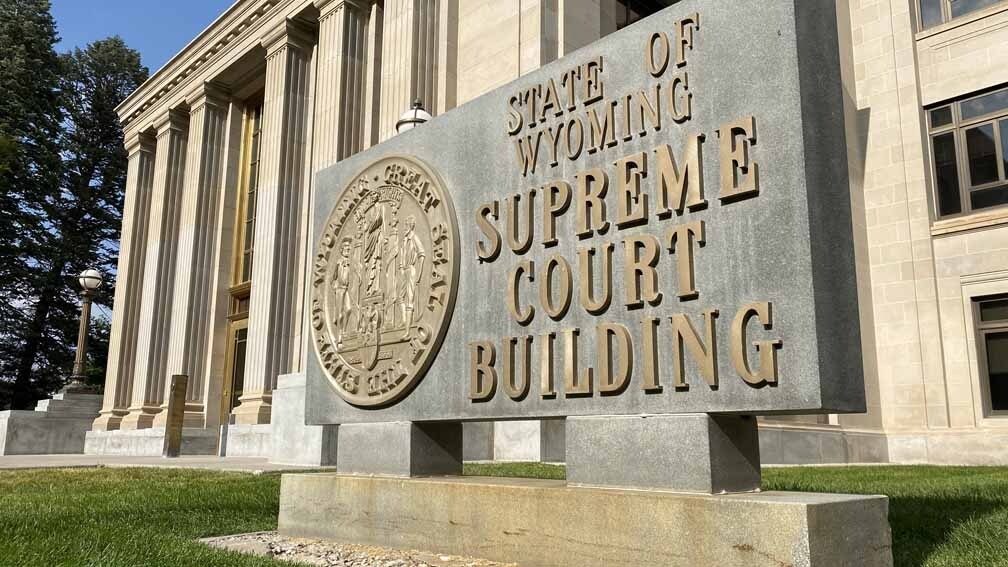Wyoming families buckle beneath crushing property taxes.
Local governments teeter on the brink of collapse.
Meanwhile, more lawmakers pile on reckless cuts, yanking backfill funding meant to soften the blow, insisting taxpayers “learn their lesson.”
It’s as if watching our communities crumble is some twisted exercise in economic literacy.
Rather than solve the crisis, they swing their axes, gut local revenue, and gamble with the survival of essential services. They tout a 50% property tax cut as a win for working families but won’t admit it would cripple law enforcement, decimate emergency medical services, and eviscerate schools. They slap on a “fiscal responsibility” label and call it reform.
In reality, it’s political cowardice cloaked in performative stagecraft and hawked as a silver bullet for a broken system.
The fantasy is that voters will finally connect taxes to services when cuts bite. But what’s the lesson? That 911 calls go unanswered? That our kids’ schools hemorrhage teachers? That our roads erode into tire-shredding craters?
Wyoming doesn’t need a self-inflicted economic crisis. We need solutions.
Hope is not a strategy.
Relief Without Ruin: A Hybrid Model
Instead of torching the house and calling it a renovation, Wyoming needs a balanced approach driven by real solutions, not political theater. A phased, targeted tax relief plan that protects homeowners without suffocating local governments.
Step 1: Slow and Steady
Slow the bleeding.
Instead of an abrupt 50% slash, phase in reductions gradually, 10% per year over five years. Cap annual property tax increases at 5% to prevent runaway hikes without shoving counties off a financial cliff.
Step 2: The Flex
Counties are choking under the 12-mill cap. Give voters the choice, county by county, to adopt minor and temporary tax rate adjustments to keep deputies on the road and ambulances running.
Step 3: Create a Local Government Stabilization Fund
Wyoming stockpiles billions in state rainy-day funds while counties sink.
Fueled by a small percentage of surplus mineral revenues during boom years, a dedicated stabilization fund could act as a life raft for local governments, keeping services afloat when property tax revenues plunge without raiding state reserves.
Step 4: Expand the Tax Base Without Selling Wyoming’s Soul
Wyoming doesn’t need an income tax; we need a more thoughtful approach to existing revenue and innovative funding solutions.
We already tax visitors through lodging and car rental surcharges, but most of that money funds tourism marketing. Instead of just luring in more tourists, why not redirect those dollars to benefit Wyomingites?
A slight increase or reallocation of these surcharges could offset property taxes and fund local services without squeezing residents.
And what about selective luxury consumption taxes? Taxing high-end recreational goods instead of working-class necessities would ease the burden without punishing everyday families.
If we don’t broaden our tax base, we’ll keep shifting the burden from one pocket to another.
Preempting the Naysayers
Critics will shriek about “big government,” insisting we slash spending and let the market decide.
But that’s not fiscal responsibility: it’s an abdication of duty. When property tax revenues crash, counties will scramble. Emergency tax hikes. Desperate budget cuts. And eventually, calls for a state income tax. That’s not a free-market fix; it’s a slow-motion disaster.
Some will scoff at redirecting tourism and luxury consumption taxes, calling it a slippery slope. But Wyoming already taxes visitors. The question isn’t whether to tax but use that revenue wisely or waste it on bloated tourism marketing.
Then there’s the “tighten your belt” myth, the claim that counties need to cut waste. Most have already maxed out their mill levies and still can’t fund essential services. Further cuts won’t build resilience. They’ll destroy communities.
This hybrid model isn’t reckless spending. It’s a responsible alternative. Because if we don’t plan ahead, lawmakers won’t be debating tax cuts. They’ll be scrambling to raise them.
If Lawmakers Can Get Out of Their Own Way
The hybrid model isn’t flashy. It doesn’t fit on a bumper sticker. But it works.
It delivers tax relief without torching public services. It gives local governments the tools to survive instead of handcuffing them.
It also shields Wyoming from disasters when the next mineral downturn or pandemic hits.
The real question is whether lawmakers have the spine to stop playing chicken with Wyoming’s future.
Because if they don’t, the crash won’t be hypothetical. It will be real.
And every Wyomingite will be left sifting through the wreckage.
Sincerely,
Jason Mower, Sweetwater County





